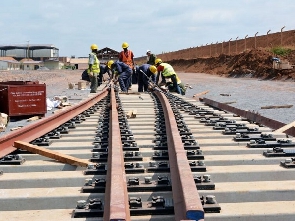Government is seeking US$12.9 billion of investments in three separate railway projects to help accelerate economic growth and achieve the sustainable development goals (SDGs).
The projects are part of a portfolio of planned infrastructural investments which the government pitched to international investors during the 2021 SDG Investment Fair held virtually from April 13–14.
They include a Light Rail Transit (LRT) network in Kumasi, estimated at US$5.8 billion, which the government aims to develop through a public-private partnership. A second project, the Central Spine Rail Line, planned to begin in 2023 will link Kumasi to Paga and has an estimated investment cost of US$3.3 billion. Both projects are currently at the feasibility stage of development.
The third project is a 550-km Trans-ECOWAS Railway Line from Aflao to Elubo, which has a price tag of US$3.8 billion and is at the pre-feasibility stage of development. Its expected start date is 2022.
An investment brochure published by the Ministry of Finance said the Trans-ECOWAS line “will ensure the smooth and rapid movement of goods and people within Ghana, as well as facilitate the movement of people and transit cargo for trade between Togo and Côte d’Ivoire.”
It added that the Kumasi LRT project will strengthen the city’s transportation system and help address urban mobility challenges which currently inhibit Kumasi’s growth.
Since 2017 the government has placed railway modernisation at the top of its economic transformation agenda, and has signed a number of deals with investors to reconstruct old lines and extend the network beyond the southern part of the country.
The size of investment needed to build a modern rail system is however huge, and the government has been actively pursuing public-private partnership options to bring its ambitious plans to fruition.
Among the ongoing rail projects are the Tema to Mpakadan line, which is 80 percent complete, and the Manso to Huni Valley line, for which the government signed a €500-million contract with construction company Amandi Holdings in June last year.
The investments in rail are expected to complement other infrastructural initiatives that will help improve Ghana’s competitiveness, increase economic growth, and promote sustainable development.
Business News of Tuesday, 27 April 2021
Source: business24.com.gh

















